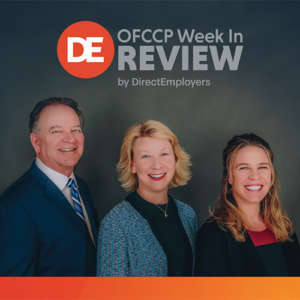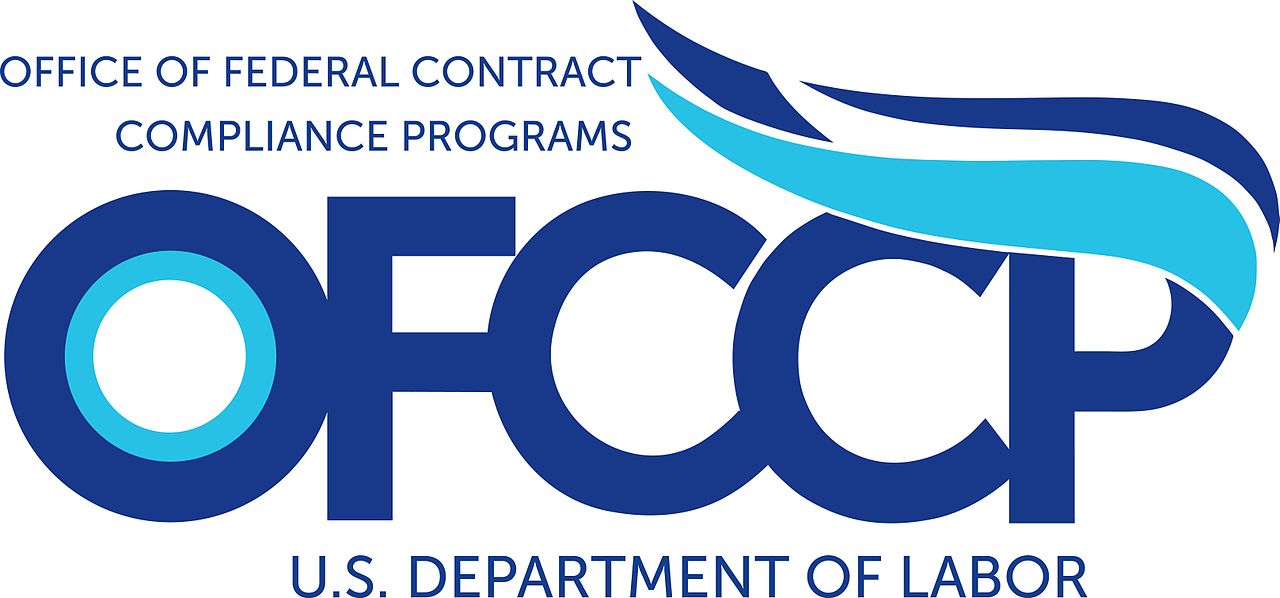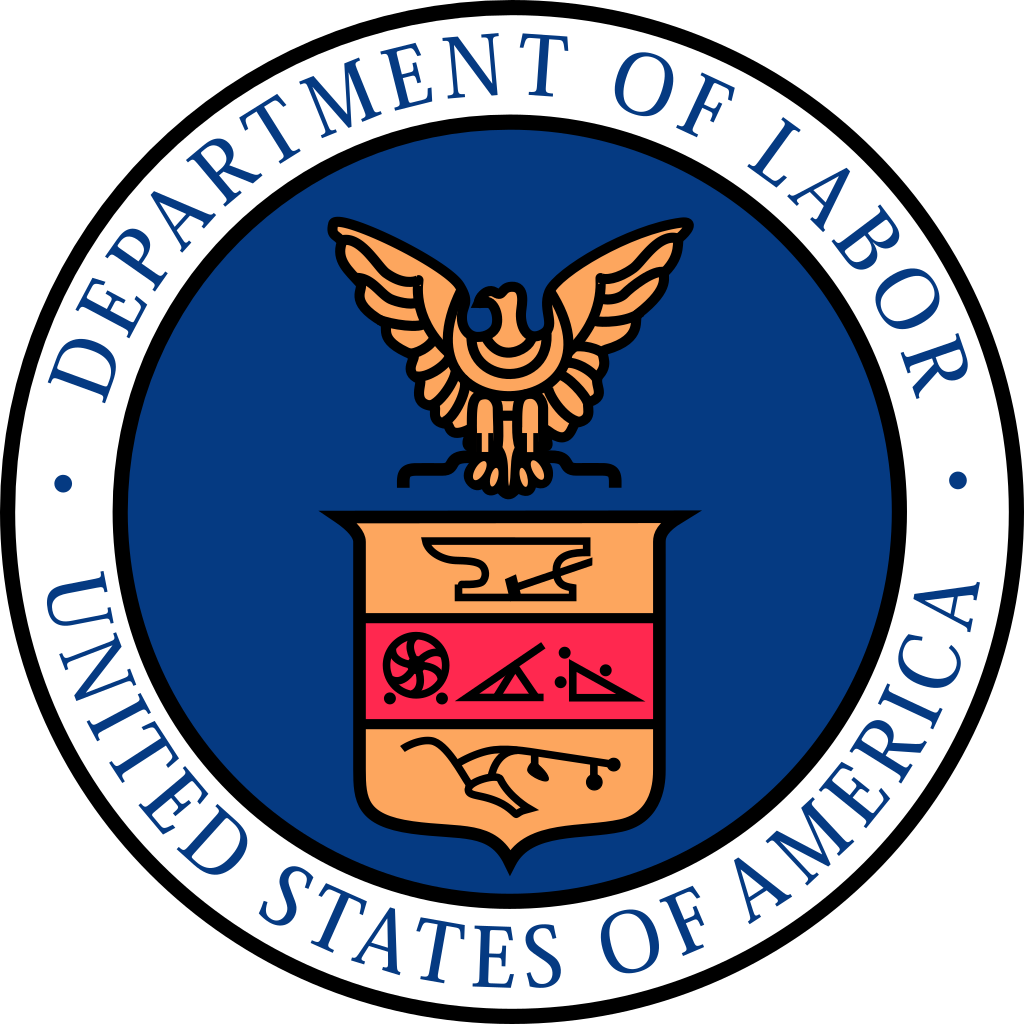 Special Edition Week In Review: Read all about it!
Special Edition Week In Review: Read all about it!
While many of you were at holiday over the last two weeks, your federal government was not, and a lot of news hit the wire. So, we were there and can now report what you missed. You are going to be amazed at what went on in your absence. Enjoy! Happy New Year from your WIR team.
In today’s edition, they discuss:
- New COVID-19 Relief Permits Employers to Voluntarily Extend Cost-Free Paid Leave Under FFCRA into 2021
- EO 13950 Imploded Even Before Biden Could Cancel it
- REMINDER: Time to Get Ready to Apply for USDOL’s HIRE Vets Medallion Program
- OFCCP Now Accepting Public Comment on Its New Proposed Information Collection Requests in Construction Contractor Compliance Audit Scheduling Letters Awaiting OMB Approval
- OFCCP Wants More Comments on Its Proposal to Require Contractors to Submit All AAPs for Verification: Public Comment Deadline Extended
- OFCCP Director Craig Leen Timed Out: Does Not Make it to OPM
- U.S. Department of Labor Issues Two Opinion Letters Regarding Travel Time and Overtime Payments Under the Fair Labor Standards Act
- EEOC Announces It will Hold Its First Commission Meeting of 2021
- OFCCP Touts a Year in Review
Monday, December 21, 2020: New COVID-19 Relief Permits Employers to Voluntarily Extend Cost-Free Paid Leave Under FFCRA into 2021

Background
On March 18, 2020, President Trump signed the FFCRA into law as the pandemic was unfolding. Among its various provisions, the FFCRA expanded the Family Medical Leave Act (FMLA) and required employers to provide paid sick leave to employees affected by the COVID-19 virus through December 31, 2020.
Change Gear
Instead of extending the paid leave component of the FFCRA, the new December 2020 law merely allows employers with fewer than 500 employees to voluntarily provide emergency paid sick leave and/or 10 weeks of expanded family leave through March 31, 2021. The law incentivizes employers to provide paid leave on a voluntary basis by allowing employers to continue to avail themselves of a FFCRA-created tax credit “reimbursing” them if they provide paid leave to one or more employees afflicted with COVID-19.
Specifically, under the FFCRA, employers were required to continue to pay an afflicted employee his or her wages/salary while out of work on sick leave. Then, to make the employer whole for those out-of-pocket compensation expenses the employer paid to afflicted employees earning pay while not working due to COVID-19 sickness, the employer could apply for and would receive payroll tax credits from the federal government to offset the costs associated with those sick leave payments. In other words, employers bore the burden of these costs until receiving the payroll tax credit at some later date. This reimbursement of the employer’s costs to front load paid sick leave payments to COVID-19 sick employees makes the paid sick leave (eventually) “cost-free” to the employer and employee. In effect, this program spreads the costs of the sick leave payments across all taxpayers. The new pandemic relief bill allows employers to continue to obtain that tax credit for any eligible paid leave the employer provides through March 31, 2021.
Limits on Paid Sick Leave
The new pandemic relief bill did not raise the 80-hour maximum sick leave allowance available for each employee since March 2020 for employer tax credit repayments. EXAMPLE: if the employee in question has already used his/her maximum 80 hours of paid sick leave in 2020, there is no additional tax credit available to an employer for any new COVID-19 induced sick leave that employee takes in 2021. If, however, an employee had drawn down in 2020 only 40 hours of his/her 80-hour limit of COVID-19 related paid sick leave, the employer could voluntarily grant paid sick leave in 2021 (through March 31, 2021) and then seek up to another 40 hours of offsetting tax credit recompense in 2021.
Going into 2021, employers must then decide whether they wish to voluntarily maintain the paid leave program. If so, your company will want to ensure that administrative documentation is in place to track which employees seeking paid leave have reached their paid sick leave credit and are no longer subject to reimbursement through tax credits.
Tuesday, December 22, 2020: EO 13950 Imploded Even Before Biden Could Cancel It

- U.S. District Court Preliminarily Enjoined EO 13950 Ban on “Divisive” D&I Training
- OFCCP Canceled Announced Focused Reviews on D&I
- OFCCP Has Also Stopped EO 13950 Complaint Investigations
The United States District Court for the Northern District of California, San Jose Division, issued a nationwide preliminary injunction stopping enforcement of provisions in Executive Order 13950 that prohibited certain “divisive” workplace diversity training by federal contractors and federal grant recipients as a condition of receiving federal funding.
The court case is Santa Cruz Lesbian and Gay Community Center d/b/a the Diversity Center of Santa Cruz, et al., Plaintiffs, v. Donald J. Trump. The decision, while only a “preliminary” injunction, good only through trial, nonetheless set off an immediate chain of events at the USDOL and OFCCP. The Department and OFCCP were not happy that The White House had saddled them with an Executive Order, some parts of which were clearly violative, on their face, of the First Amendment. As a result, OFCCP moved quickly to shut down the entirety of the EO 13950 program it had been enforcing.
First, OFCCP Director Craig Leen publicly reported that the agency’s recently announced focused reviews on D&I training were canceled even before their deployment next year.
Second, Director Leen then further announced that OFCCP had decided to convert the focused reviews on D&I training to focused reviews on Affirmative Action Outreach. OFCCP has not yet had time, of course, to even produce a draft focused review on D&I training audit Scheduling Letter for the Office of Management and Budget (OMB) to review, let alone rebound already and produce a draft audit Scheduling Letter for Affirmative Action Outreach. Such a Scheduling Letter will undoubtedly wait for the new OFCCP Director, once announced and on-board, to first decide whether to even continue with focused reviews and, if so, whether to continue with a focused review on Affirmative Action Outreach.
Third, Director Leen publicly announced that OFCCP had stopped all EO 13950 Complaint investigations. OFCCP will presumably dismiss and administratively close all such Complaints. There are two open questions then remaining: (1) do any of the remaining Complaints provide OFCCP with jurisdiction pursuant to EO 11246 (not pursuant to EO 13950); and if so (2) how will OFCCP proceed to investigate and resolve them? Oddly, no one at OFCCP seems to have yet sufficiently catalogued the approximately 200 Complaints which OFCCP has received in response to President Trump’s issuance of EO 13950 to know which ones, if any, trigger OFCCP’s EO 11246 jurisdiction (separate and apart from OFCCP’s previous jurisdiction under EO 13950). We expect news on that front in the coming days before Inauguration Day on January 20, 2021. (Many Republicans seem very interested to bury and finish the EO 13950 debacle before President-Elect Biden can be installed in office, rescind EO 13950 and then take a ceremonial “victory lap” for having vanquished this unpopular Executive Order.)
Wednesday, December 23, 2020: REMINDER: Time to Get Ready to Apply for USDOL’s HIRE Vets Medallion Program

To assist interested federal contractors, the government provides several resources to assist you to submit an application. Not only are sample applications available, employers should use the site to determine whether they meet the criteria to qualify and to answer any general questions they may have about the program. Application fees this year vary from $90 to $495, depending on the size of the employer and the level of award the employer seeks to obtain.
Many DE Members have already earned this noteworthy recognition. We encourage all of you to apply and be recognized for your ongoing efforts and successes in hiring our transitioning veterans.
Wednesday, December 23, 2020: OFCCP Now Accepting Public Comment on Its New Proposed Information Collection Requests in Construction Contractor Compliance Audit Scheduling Letters Awaiting OMB Approval

Background
As you may recall from DE’s November 2, 2020 WIR, on October 30, 2020 OFCCP issued a Notice soliciting public comments by December 29, 2020 on its initial proposal to begin use of its first OMB-approved construction contractor audit Scheduling Letter in modern times. However, OFCCP has now withdrawn the audit Scheduling Letter and attached Itemized Listing the agency had originally proposed, and has proposed instead this new audit Scheduling Letter and Itemized Listing for OMB’s approval.
The new and revised proposed Itemized Listing attached to the proposed audit Scheduling Letter for construction contractors is far more extensive than the prior proposed Itemized Listing. The volume and type of data requested is quite voluminous and will be onerous for contractors to gather, sort and clean. Additionally, the new and revised Itemized Listing divides the documentation sought by breaking the requests into the different laws OFCCP enforces (Executive Order 11246, Section 503, and VEVRAA). For example, in regard to Executive Order 11246 requests, the newly proposed Itemized Listing requests:
- “A list of all construction projects by name and location, as well as foundational information related to each project (such as the funding government agency, name of the prime contractor, dollar amount of the contract, dates of contract award and start of construction work, percentage of work completed, and estimated completion date);”
- Rather than “examples” of payroll records for some construction trade employees, the new Itemized Listing requests all employee level payroll data for all construction trade employees working during the preceding 12 months;
- Data as to all construction trade employment activity during the preceding 12 months, including a list of applicants, hires, promotions, recalls, and terminations;
- A list of all federal and federally assisted construction subcontracts (as OFCCP’s Rules torturously define that term) the construction contractor awarded in excess of $10,000 in the preceding 12 months. [NOTE: This will be onerous for most construction contractors to determine and will require a manual review, contract by contract. And, this very request has been a controversial flashpoint between OFCCP and contractors in the past from which OFCCP had previously backed down]
- A copy of the federal contractor’s current EEO Policy Statement;
- Records of notices to subcontractors about EEO obligations the Contractor issued during the preceding 12 months;
- A list of all minority and female recruitment sources the contractor used in the preceding 12 months;
- Documentation evidencing minority and female recruitment efforts during the preceding 12 months;
- Communications during the preceding 12 months with unions and training programs describing the contractor’s EEO obligations and requesting their cooperation to assist the contractor to meet its EEO obligations;
- Records identifying trade organization affiliations and unions that provide workers for the contractor’s construction contracts, including a copy of any applicable collective bargaining agreements;
- Documentation demonstrating review of the EEO policy with all management personnel and all employees working during the preceding 12 months;
- Rather than “examples of job advertisements and postings,” documentation of all job advertisements posted for construction work during the preceding 12 months;
- Rather than “examples of accommodation requests received,” a copy of any reasonable accommodation policies, as well as all requests received and their resolution, if any, during the preceding 12 months;
- Documentation of all solicitations of offers for subcontracts (as OFCCP torturously defines that term) from minority and female construction contractors and suppliers;
- List of training programs the contractor participated in during the preceding 12 months; and
- A copy of the Contractor’s Type 2 – Consolidated Employer Information EEO-1 Report from the most recent filing period. If the Contractor did not file an EEO-1 Report, identification of the total number of individuals employed company-wide as of the date of OFCCP’s audit Scheduling Letter.
Similarly, while the new Itemized Listing still requests a copy of the current Section 503 and VEVRAA Affirmative Action Plan(s) the prior proposed OFCCP audit Scheduling Letter had requested, the new Itemized Listing additionally requests the underlying documentation related to Section 503 and VEVRAA non-discrimination and recruitment efforts.
The new information collection requests are far more expansive than the prior Itemized Listing contained in the previously proposed construction audit Scheduling Letter. Construction contractors should take notice of the far more administratively taxing and burdensome document demands this proposed audit Scheduling Letter and attached Itemized Listing portends. These newly proposed document requests more closely resemble the type and volume of information sought in a standard audit Scheduling Letter for Supply and Service contractors. However, these document requests also ignore entirely the often very large role unions so often have in large scale federal construction projects and the role bona fide seniority plays to render many of the statistical analyses OFCCP hopes to undertake immune from discrimination analyses and OFCCP liability and/or remedies.
Remember, public comments like yours operate as trial evidence which comes into play in any ensuing litigation challenging the Rules as unduly burdensome. Construction contractors concerned about the burden of the proposed Itemized Listing should make their voices heard through comments submitted on or before February 21, 2021.
Tuesday, December 29, 2020: OFCCP Wants More Comments on Its Proposal to Require Contractors to Submit All AAPs for Verification: Public Comment Deadline Extended

OFCCP also seeks to justify the authority to create an electronic interface to receive contractor AAPs by adding the afterthought that the Interface would also be available for contractors undergoing an audit to use it as a convenient way to deliver their AAPs to OFCCP.
Note: OFCCP Rules do not require contractors to submit their AAPs to OFCCP in electronic or digital form whether in audit, or not.
How Did We Get Here?
OFCCP initially issued a Notice for comment on September 14, 2020, but received only 16 comments in response. Most of the comments addressed rampant contractor concerns for the data security of their AAPs in an age of electronic penetration where not even the White House or the Department of Defense are immune to computer hackers. Other comments opposed both the verification project and the electronic interface as unnecessary. A few AAP vendors thought the proposal was a good idea.
The AAP verification project arose as a result of the Government Accounting Office’s (GAO’s) September 2016 report titled “Strengthening Oversight Could Improve Federal Contractor Nondiscrimination Compliance.” GAO’s report made six recommendations, the second of which suggested (at pp. 18-19 and p.37) that OFCCP should:
“Develop a mechanism to monitor AAPs from covered federal contractors on a regular basis. Such a mechanism could include electronically collecting AAPs and contractor certification of annual updates.”
GAO formed this recommendation based on its review of internal OFCCP data which showed that in Fiscal Year 2015 that “…close to 85 percent of contractor establishments did not submit an AAP within 30 days of receiving a scheduling letter… .” (see p. 18 of GAO report). Later, OFCCP reported that the average for all AAP receipts was 67 days after their due dates. GAO’s assumption was that contractors did not have their AAPs or their annual updates of their AAPs ready and on hand at the time of OFCCP’s audit Scheduling Letter as OFCCP’s Rules require.
DE previously summarized OFCCP’s initial two-pronged proposal noting that OFCCP sought “authorization for an annual, online, Affirmative Action Program (AAP) certification process for federal contractors and for a secure method for federal contractors to submit AAPs electronically to the OFCCP when they are scheduled for a Compliance Evaluation.”
What OFCCP Wants Now
OFCCP now seeks comments addressing whether:
- The collection of information is necessary for the proper performance of the functions of the Department of Labor;
- The information will be processed and used in a timely manner;
- The agency’s estimates of the burden and costs associated with the collection of information are accurate;
- There are ways to enhance the quality, utility, and clarity of the information collection; and
- There are ways to minimize the burden of the collection of information on those who are to respond, including the benefits of using automated collection techniques or other forms of information technology.
Reminder
Comment Due Date: On or before January 28, 2021.
Thursday, December 31, 2020: OFCCP Director Craig Leen Timed Out: Does Not Make it to OPM

Congress sits in two-year terms consonant with the Congressional elections for all house Members and about 1/3rd of the Senate every two years. The 107th Congress is scheduled to convene today: Monday January 4, 2021. All prior nominations and Committee recommendations are now wiped away: the new Congress starts with a clean slate.
Director Leen will thus “go down with the ship” and January 20, 2021 (Inauguration Day) will likely be his last day at OFCCP. Thereafter, Mr. Leen will be a civilian looking for a job during a pandemic. He will hand the reigns of OFCCP over to career employee and OFCCP Deputy Director Patricia (Patty) J. Davidson to run the OFCCP while awaiting the next OFCCP Director’s arrival. All Trump Administration political appointees, including Secretary of Labor Scalia, will leave the Department not later than January 20. Because it will take some time to seat the next Secretary of Labor, who is subject to the “advice and consent” of the U.S. Senate, and get him or her through Senate Confirmation Hearings following nomination (meaning testimony before and a vote of the Senate Health, Education, Labor and Pensions (H.E.L.P) Committee, and then a full Senate Floor Vote), Ms. Davidson will report to the Biden Labor Department Transition Team after President Biden is sworn in and while awaiting the next OFCCP Director.
Thursday, December 31, 2020: U.S. Department of Labor Issues Two Opinion Letters Regarding Travel Time and Overtime Payments Under the Fair Labor Standards Act

Opinion Letter FLSA2020-19
First, in FLSA2020-19 the USDOL determined that time spent traveling between a person’s home and office for those individuals choosing to telework for part of the day is not compensable time under the FLSA. Specifically, the USDOL concluded that time spent traveling during the workday from home to work is time an employee is “off-duty” or engaged in normal commuting, and as such the employee is not primarily engaged for the benefit of the employer.
Under the FLSA, an employee is engaged in “work” and thus subject to compensation from an employer when the employee’s actions are primarily for the benefit of the employer. This is why travel between different worksites between the start and end of the workday are normally considered part of an employee’s “work,” and thus are compensable under the FLSA. However, the FLSA also recognizes that commuting from home to work to be on duty is not “work” because the employee has not performed her first principal work activity of the day. Similarly, commuting from work back to home is not “work” because the employee has completed her principal work activity for the day.
Given the fact that more employees are working remotely from home for at least part of the workday, employers would of course seek clarification from the USDOL as to which underlying principle discussed above would apply; compensating travel between different workplaces, or holding that commute time is not primarily for the benefit of the employer. In response, the USDOL concluded that since the employer is not requiring an employee to work during any commute from his or her home office to the physical location of the employer’s office, that time is not compensable “work.” The USDOL distinguished this example from compensable worksite-to-worksite travel during the business day by noting that the employer does not require the employee to travel as part of his or her work; “rather, [the employee] is traveling of [their] own volition for [their] own purposes during [their] off-duty time.” Thus, when an employee chooses to perform some work before traveling to the office, or chooses to perform work at home after leaving the office, the time spent commuting between the employee’s home and office is not compensable.
Opinion Letter FLSA2020-20
Secondly, in FLSA2020-20 the USDOL confirmed that extra compensation an employer provides live-in caregivers for hours worked in excess of 40 hours in a week may be excluded from the calculation of the “regular rate of pay” when calculating overtime premiums, and that an employer may credit any such extra compensation towards any overtime pay the employer may owe the employees.
With the COVID-19 pandemic increasing the need for in-home care services on a live-in basis, nursing care companies sought clarification as to how to properly compensate for overtime under the FLSA when live-in caregivers are outside the control and immediate supervision of the company. Certain employers of live-in caregivers seek to address this issue by including extra compensation upfront for certain hours to address potential overtime owed to the caregiver.
By providing an agreement to employees who are live-in caregivers that includes this “extra” compensation for all hours worked in excess of 40 hours in a week, employers do not run the risk of running afoul of overtime pay calculation requirements under the FLSA. First, because the “extra” compensation the employer provides by agreement is for work in excess of 40 hours in a workweek, that compensation falls into one of the exceptions otherwise requiring such pay to be counted as “remuneration” when calculating the “regular rate of pay” under the FLSA. (The regular rate of pay is the basis employers must use when calculating the amount of overtime due a non-exempt employee, and must include all “remuneration” paid an employer pays to the employee, with limited exceptions). This is one such exception we now learn.
Second, by providing such “extra” compensation for the intent of addressing overtime due the employee, an employer may properly use such “extra” compensation towards any overtime actually owed to the employee. This is because section 7(h) of the FLSA permits an employer to credit any such payments towards the overtime pay owed under the FLSA.
Thus, the USDOL’s opinion relies on the explicit language of Sections 7(e)(5) and 7(h) of the FLSA for its determinations. Given the foregoing, an employer’s practice of paying “extra compensation” for hours over eight hours in a workday or 40 hours in a workweek based on an expected number of hours worked in a schedule is appropriate and consistent with the FLSA’s overtime provisions.
Thursday, December 31, 2020: EEOC Announces It will Hold Its First Commission Meeting of 2021

The following matters are on the agenda to discuss:
- Final Rule Updating the Commission’s Conciliation Procedures
- Note: This has been controversial. Expect the Democrats to oppose and dissent as the Republicans vote in favor of the proposed changes. See our August 24, 2020 WIR for additional information on this topic
- Formal Opinion Letter Concerning Individual Coverage Health Reimbursement Arrangements under the ADEA
- Final Rule Amending the Commission’s Official Time Regulation for the Federal Sector
Monday, January 4, 2021: OFCCP Touts a Year in Review

Headlines include:
- Effective Enforcement;
- Rulemaking (three Final Rules in 2020);
- Increased Transparency;
- Enhanced Efficiency; and
- Supported Equal Employment Opportunity.
THIS COLUMN IS MEANT TO ASSIST IN A GENERAL UNDERSTANDING OF THE CURRENT LAW AND PRACTICE RELATING TO OFCCP. IT IS NOT TO BE REGARDED AS LEGAL ADVICE. COMPANIES OR INDIVIDUALS WITH PARTICULAR QUESTIONS SHOULD SEEK ADVICE OF COUNSEL.
SUBSCRIBE.
Compliance Alerts
Compliance Tips
Week In Review (WIR)
Subscribe to receive alerts, news and updates on all things related to OFCCP compliance as it applies to federal contractors.
OFCCP Compliance Text Alerts
Get OFCCP compliance alerts on your cell phone. Text the word compliance to 55678 and confirm your subscription. Provider message and data rates may apply.


